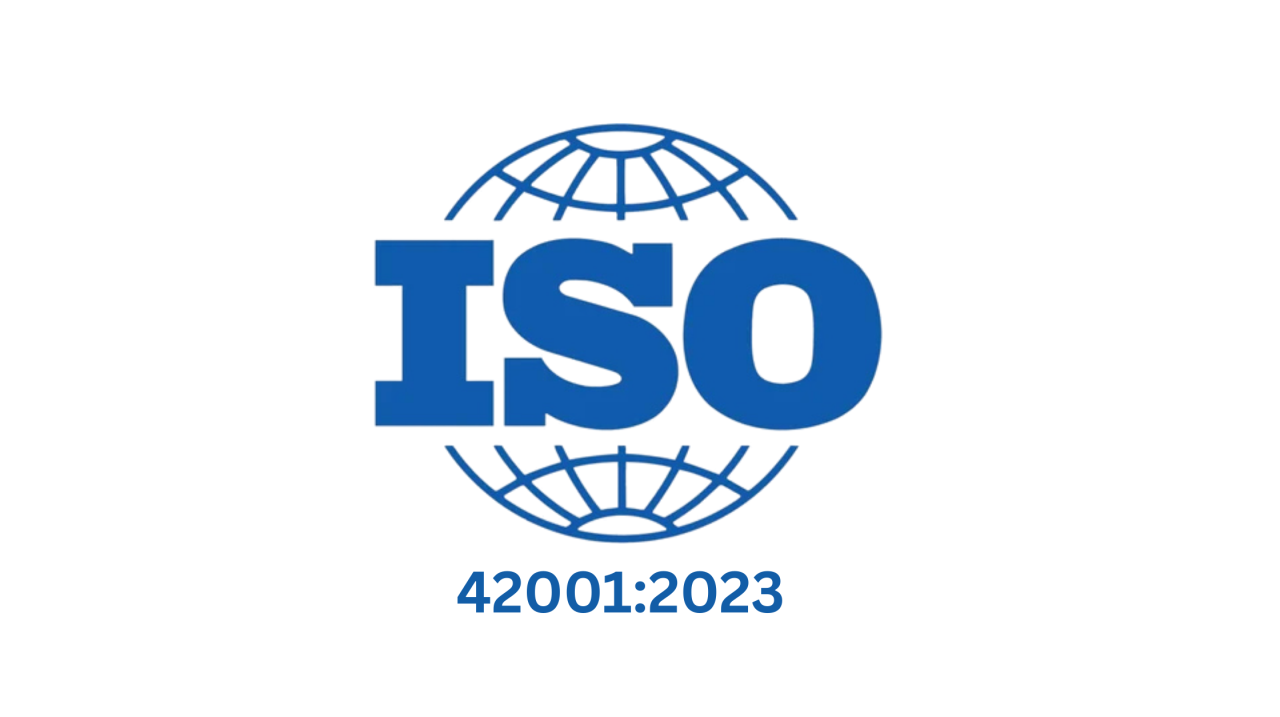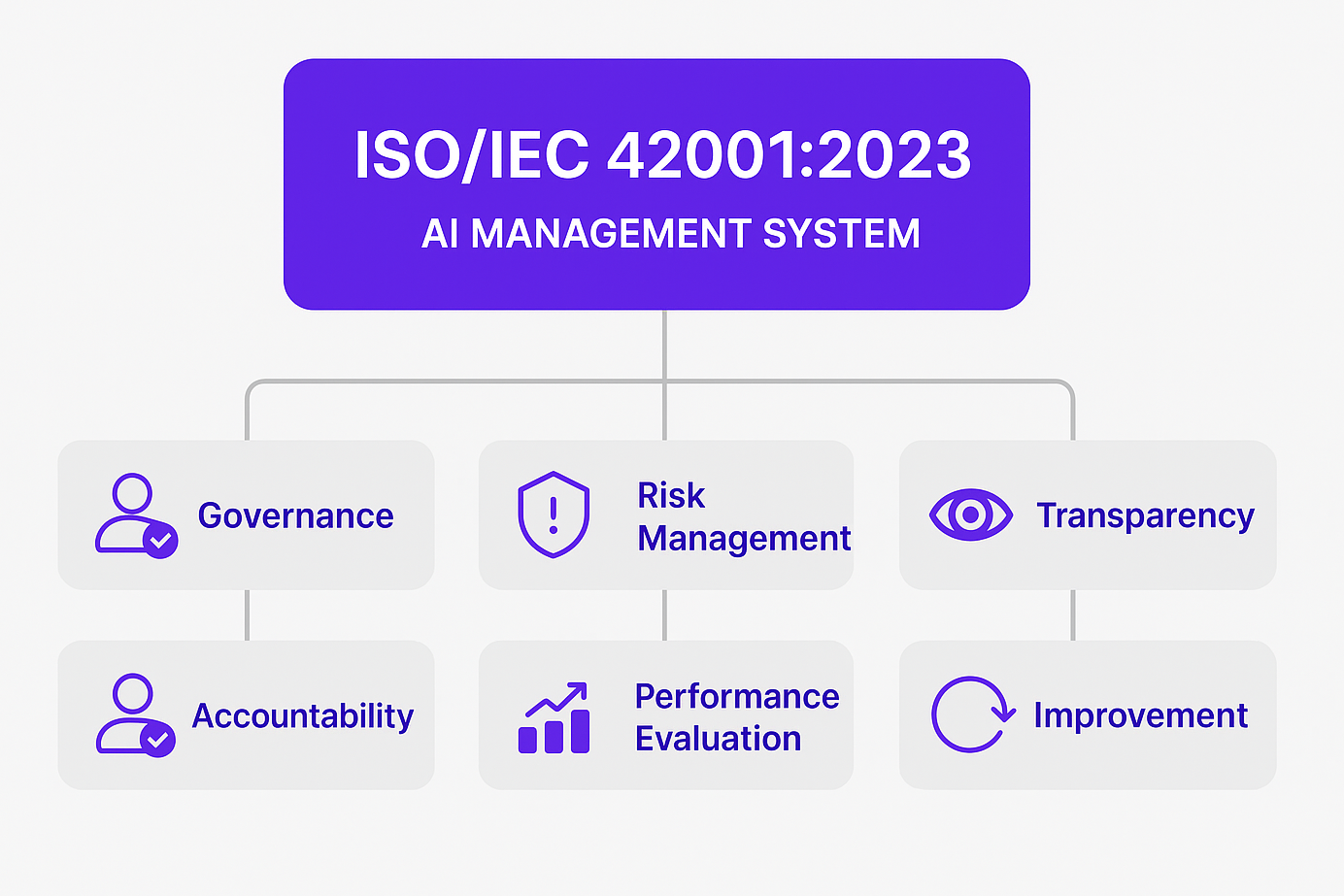ISO/IEC 42001:2023

Artificial Intelligence (AI) is rapidly transforming industries by driving automation, personalization, and smarter decision-making. However, its adoption also introduces risks related to ethics, transparency, security, and accountability. To address these challenges, organizations can adopt ISO/IEC 42001:2023, the world’s first internationally recognized standard for establishing, implementing, maintaining, and continually improving an Artificial Intelligence Management System (AIMS). ISO/IEC 42001:2023 AIMS Compliance with Sahl guides organizations in achieving trust, transparency, and ethical AI governance.
Why ISO/IEC 42001:2023 Matters
- Responsible AI Governance: Provides a structured framework for managing AI systems with accountability and oversight.
- Trust and Transparency: Builds stakeholder confidence by ensuring ethical, explainable, and unbiased AI practices.
- Risk Management: Identifies, assesses, and mitigates AI-specific risks including bias, security, and unintended consequences.
- Regulatory Readiness: Supports compliance with emerging AI regulations worldwide, such as the EU AI Act.
- Continual Improvement: Encourages organizations to monitor, measure, and refine AI performance and governance practices.
Key Components of ISO/IEC 42001:2023
- AI Management Framework: Defines governance, roles, and responsibilities for AI oversight.
- Risk-Based Approach: Focuses on identifying and mitigating ethical, technical, and operational risks in AI systems.
- AI Lifecycle Management: Covers planning, data governance, design, development, deployment, and monitoring.
- Transparency and Accountability: Requires clear documentation and explainability for AI decisions.
- Performance Evaluation: Encourages periodic reviews and assessments of AI’s impact and compliance.
- Continuous Improvement: Establishes processes for ongoing refinement and responsible AI evolution.

Benefits of ISO/IEC 42001:2023 Certification
- Enhances credibility with regulators, customers, and partners.
- Demonstrates ethical and responsible AI adoption.
- Provides a competitive edge in AI-driven markets.
- Reduces risks of bias, non-compliance, and reputational damage.
- Ensures alignment with global best practices for AI governance.
ISO/IEC 42001:2023 AIMS Compliance with Sahl
At Sahl, we help businesses accelerate compliance with ISO/IEC 42001:2023 through AI-powered compliance automation. Our platform simplifies AIMS implementation by:
- Mapping your existing AI processes against ISO/IEC 42001 requirements.
- Automating evidence collection and compliance documentation.
- Providing dashboards for real-time monitoring of AI compliance.
- Ensuring audits are seamless, efficient, and resource-friendly.
Conclusion
ISO/IEC 42001:2023 sets the benchmark for responsible AI governance by providing a structured framework for ethical, transparent, and accountable AI adoption. By implementing this standard with Sahl, organizations can minimize AI-related risks, ensure regulatory readiness, and build lasting trust with stakeholders while fostering continual improvement in AI performance and governance.
FAQs
1: Who needs ISO/IEC 42001:2023?
Organizations that develop, deploy, or rely on AI systems. This includes technology providers, financial institutions, healthcare, manufacturing, and government bodies.
2: How is it different from other standards?
Unlike IT or security standards such as ISO/IEC 27001, ISO/IEC 42001 is tailored specifically for AI governance. It addresses ethical, social, and technical challenges unique to AI.
3: Does it integrate with other standards?
Yes. It complements ISO/IEC 27001 for information security, ISO 9001 for quality, and ISO/IEC 20000-1 for IT service management, creating a robust compliance ecosystem.
4: How long does certification take?
Timelines vary depending on AI maturity and organizational readiness.
Learn more about how Sahl can help you achieve ISO/IEC 42001:2023 compliance: getsahl.io

